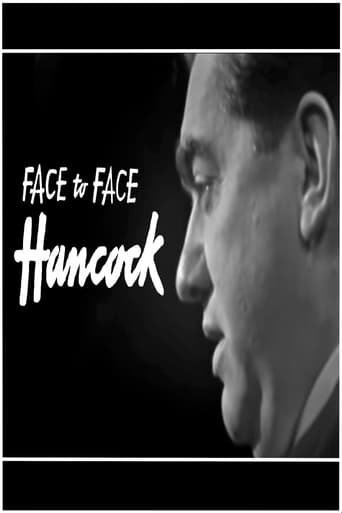Face to Face: Tony Hancock
8.2
Documentary
Rated:
1960
0h30m
On:
Country: United Kingdom
Tony Hancock engages in self-reflection, looking back at his childhood, his need to work, his health issues, and whether he could ever truly be happy. The program is believed to have played a role in his eventual downfall by amplifying his proclivity for self-criticism. During the interview, John Freeman posed probing questions about Hancock's life and career. Despite his admiration for the interviewer, Hancock seemed uneasy but responded candidly. Known for his inherent self-critical nature, it is frequently posited that this interview intensified that trait, ultimately contributing to his subsequent challenges. According to Roger, Hancock's brother, "It was the most significant misstep he ever took. I believe it all stemmed from that moment. Self-analysis - that became his undoing. Tony Hancock engages in self-reflection, looking back at his childhood, his need to work, his health issues, and whether he could ever truly be happy. The program is believed to have played a role in his eventual downfall by amplifying his proclivity for self-criticism. During the interview, John Freeman posed probing questions about Hancock's life and career. Despite his admiration for the interviewer, Hancock seemed uneasy but responded candidly. Known for his inherent self-critical nature, it is frequently posited that this interview intensified that trait, ultimately contributing to his subsequent challenges. According to Roger, Hancock's brother, "It was the most significant misstep he ever took. I believe it all stemmed from that moment. Self-analysis - that became his undoing. Tony Hancock engages in self-reflection, looking back at his childhood, his need to work, his health issues, and whether he could ever truly be happy. The program is believed to have played a role in his eventual downfall by amplifying his proclivity for self-criticism. During the interview, John Freeman posed probing questions about Hancock's life and career. Despite his admiration for the interviewer, Hancock seemed uneasy but responded candidly. Known for his inherent self-critical nature, it is frequently posited that this interview intensified that trait, ultimately contributing to his subsequent challenges. According to Roger, Hancock's brother, "It was the most significant misstep he ever took. I believe it all stemmed from that moment. Self-analysis - that became his undoing. Tony Hancock engages in self-reflection, looking back at his childhood, his need to work, his health issues, and whether he could ever truly be happy. The program is believed to have played a role in his eventual downfall by amplifying his proclivity for self-criticism. During the interview, John Freeman posed probing questions about Hancock's life and career. Despite his admiration for the interviewer, Hancock seemed uneasy but responded candidly. Known for his inherent self-critical nature, it is frequently posited that this interview intensified that trait, ultimately contributing to his subsequent challenges. According to Roger, Hancock's brother, "It was the most significant misstep he ever took. I believe it all stemmed from that moment. Self-analysis - that became his undoing.



 AD
AD